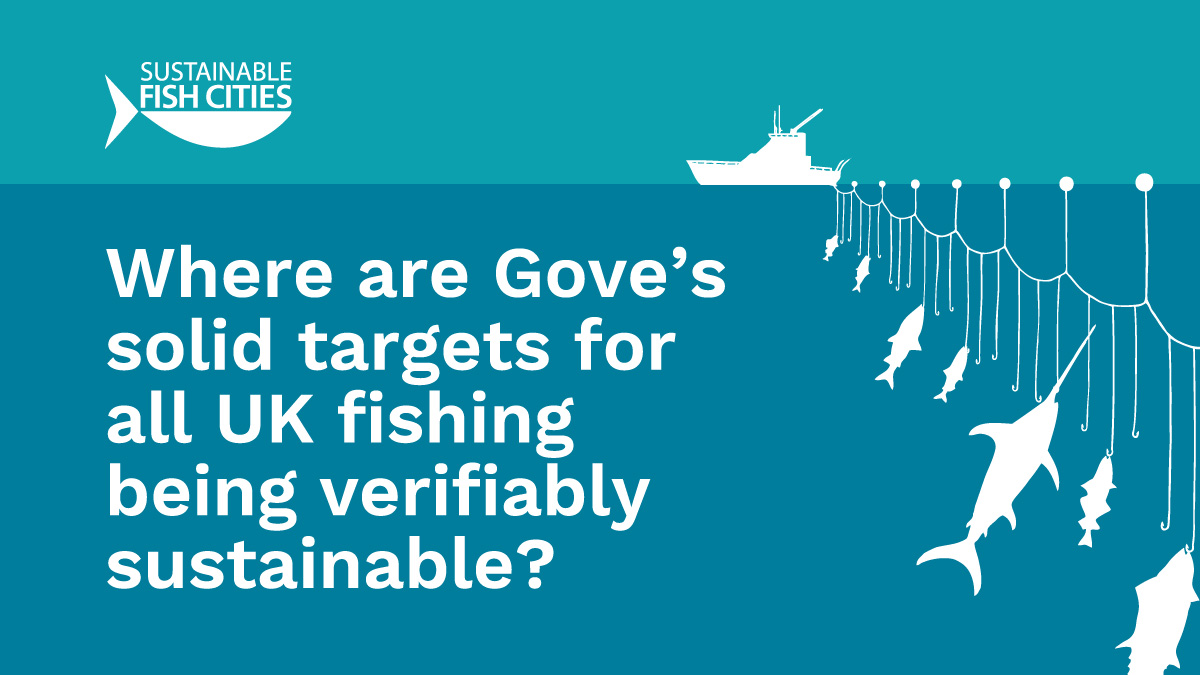

Sustain response to Defra Fisheries Bill, July 2018
Archived project
Please note that the content on this page has been archived and is not actively reviewed at present.
In July 2019, the Government opened a consultation on the future of UK fisheries; despite warm promises about sustainability, they proposed no clear target for sustainable fishing, data collection or funding.
Michael Gove is quite right to focus his plans on how to manage our resources while protecting the marine environment. Our research shows UK fishers are losing out on millions of pounds a year because they can’t prove they’re sustainable. Gove’s overall vision is one of increasing access to oversees markets. The growth of the market for sustainable fish is 10 times faster than the market for conventional seafood so caring for our seas isn’t just good for the environment, it’s good for business.
Our response to some of the specific proposals in the plan:
There are some positive and very welcome proposals in the plan - including the commitment that, for shared stocks, the UK will agree all total allowable catches with the EU and other coastal states including Norway. The UK will also continue to respect Maximum Sustainable Yield. Only one third of fish stocks in UK waters are harvested sustainably at the moment so there is a lot of work to do to achieve this. Unfortunately, the plan lacks clarity about when all fishing quotas will be set at a level which would produce MSY – this is a concern becasue anything later that 2020 would be a step backwards for the UK (2020 is the clear date set out in EU policy). We have sought clarification from Defra on this.
Government has already announced an annual statement on the state of UK fish stocks which is very welcome, but it will be a thin document because many are data deficient. This annual statement should show how a fishery is progressing on a range of measures that determine sustainability, for example: stock, fishery impact on the seafloor and other species, management and adherence to laws. There also needs to be a clear, time-bound plan to recover depleted stocks.
We need a clear commitment to ending data deficiency in UK fisheries
With all the talk about taking back control of fishing waters after Brexit, it is astonishing that the plan does not propose to reform how England allocates its share of the quota. Nothing about guaranteeing that smaller and low-impact boats will be better off after Brexit, just that Defra will 'examine' ways to distribute any new quota that may be won after Brexit – dependent on the outcome of negotiations, and, ultimately dependent on other coastal states agreeing to reduce the amount of fish that they take.
This is actually a bit of a backwards step - The EU Common Fisheries Policy includes a clear requirement to allocate fishing rights on social and ecological criteria to benefit smaller, lower-impact and artisan fishers. Unfortunately, our Government hasn’t done well at implementing this rule; In 2016 for example, three companies controlled 61% of the quota for England and Wales, and in fact Greenpeace took the UK Government to court for failing to follow these rules.
The commitment to maintaining the discard ban and finding a system to manage choke species is very welcome. It is reassuring to see that science will underpin any decision on managing discarding.
The National Federation of Fisherman's Organisations has raised concerns about a days-at-sea- approach to managing fisheries, so it looks like Micheal Gove has caved in to the pressure from some fishers here. Any trials of effort-based management must only be for the lowest-impact fishing and healthiest stocks, where robust vessel monitoring and catch reporting are in place, with CCTV or other technology to prevent overfishing. We look forward to hearing the view of the scientific community on this issue.
Upon leaving the EU, UK fishers, businesses and organisations will no longer be eligable for funding through the EMFF (European Fisheries and Maritime Fund) which has made €243.1m available between 2014 and 2020.
The plan seems to propose that all vessels fishing in the UK will be fitted with ‘well-resourced’ vessel monitoring systems – this is a very welcome move (currently this is required in England but not Scotland) – but the wording is too vague and we can’t be sure exactly what monitoring is proposed. It is vital that this is clarified – there have been recent worrying reports of illegal fishing within protected areas.
Government should act as a leader and a responsible consumer, linking fishing policy with public health and boosting incomes for the UK fishing industry through its public-sector buying, by:
- Confirming the public sector commitment to verifiably sustainable fish
- Updating school food standards to require sustainability criteria
- Making healthy and sustainable food standards legally binding for hospitals, prisons and the British armed forces
- Going further in Central Government contracts to demonstrate innovation and even better sustainable fish buying standards
Find the Government's press notice about this here and full consultation document here
Brexit: We stand at a cross-roads. When the UK leaves the European Union, will our leaders uphold good standards for our food, farming, fishing and trade deals? And will they agree a sensible deal with the EU? We need to make sure that they do!
Sustain
The Green House
244-254 Cambridge Heath Road
London E2 9DA
020 3559 6777
sustain@sustainweb.org
Sustain advocates food and agriculture policies and practices that enhance the health and welfare of people and animals, improve the working and living environment, promote equity and enrich society and culture.
© Sustain 2026
Registered charity (no. 1018643)
Data privacy & cookies
Icons by Icons8